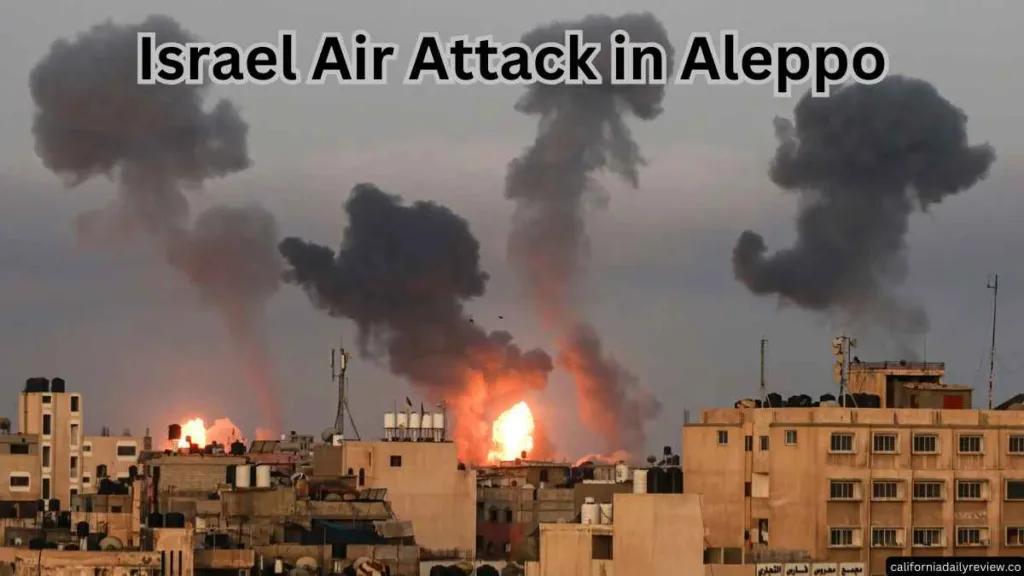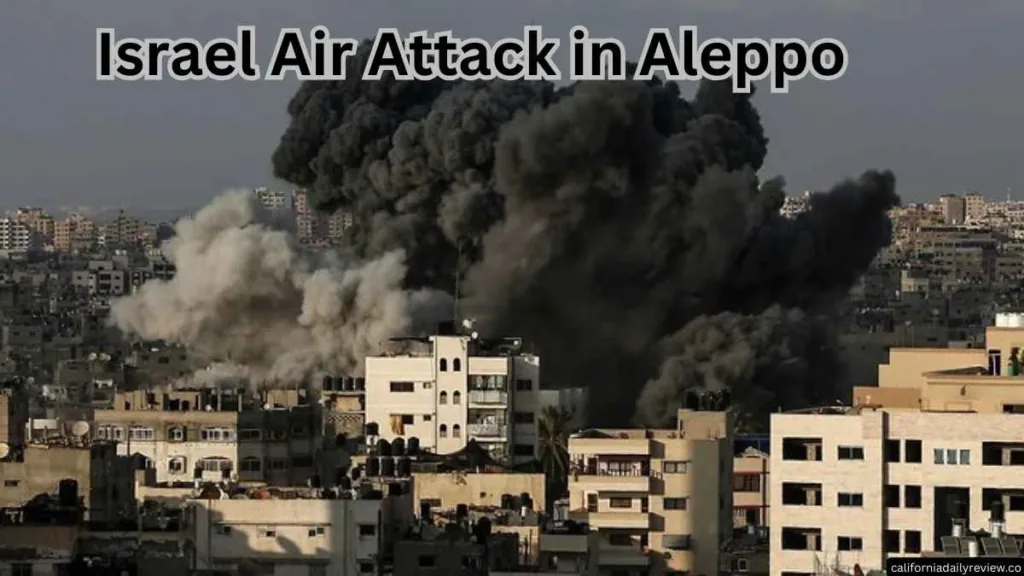In a recent development, Israel has once again launched a massive air attack in Aleppo, Syria, triggering significant casualties and property damage. This aggressive move by the Israeli army has drawn attention to the escalating tensions in the region and raised concerns about the ongoing conflict dynamics. Let’s delve deeper into the details of this event and its broader implications.
Israel’s Airstrikes in Aleppo:
According to reports from Syrian officials, Israel conducted intense airstrikes targeting various locations in Aleppo, including civilian areas and military installations. The strikes resulted in a substantial loss of life and extensive damage to properties, although the exact casualty figures are yet to be disclosed.

Syrian state media quoted military sources confirming the Israeli airstrikes in Aleppo and its surrounding areas. The attacks reportedly included missile strikes on civilian targets and drone strikes by Syrian rebel factions. The Syrian Observatory for Human Rights, based in Britain, further corroborated the strikes, indicating that they targeted a missile depot belonging to Hezbollah, a Lebanese militant group, in Jibreen, a southern suburb of Aleppo.
Implications and Context:
These airstrikes highlight the persistent tensions and volatile situation in the Middle East, particularly concerning the involvement of various regional actors in the Syrian conflict. Israel’s frequent targeting of Iranian-linked assets in Syria underscores its strategic concerns and efforts to contain perceived threats to its security.

The presence of Hezbollah in Syria, aligned with the Assad government, adds another layer of complexity to the situation. Hezbollah’s involvement in the Syrian conflict, alongside other Iranian-backed groups, has drawn the ire of Israel, leading to periodic military engagements and airstrikes.
Furthermore, the timing of these airstrikes amid ongoing conflicts in Gaza and tensions along the Lebanon-Israel border underscores the interconnectedness of regional dynamics. The escalating violence and instability in Syria contribute to the broader regional tensions, exacerbating the humanitarian crisis and hindering prospects for peace and stability.

Conclusion:
The recent airstrikes by Israel in Aleppo, Syria, underscore the complex geopolitical dynamics and heightened tensions in the Middle East. As the situation continues to evolve, all stakeholders must exercise restraint and pursue diplomatic solutions to address the root causes of the conflict. However, without meaningful dialogue and concerted efforts to de-escalate tensions, the cycle of violence and instability is likely to persist, further jeopardizing the security and well-being of the region.





